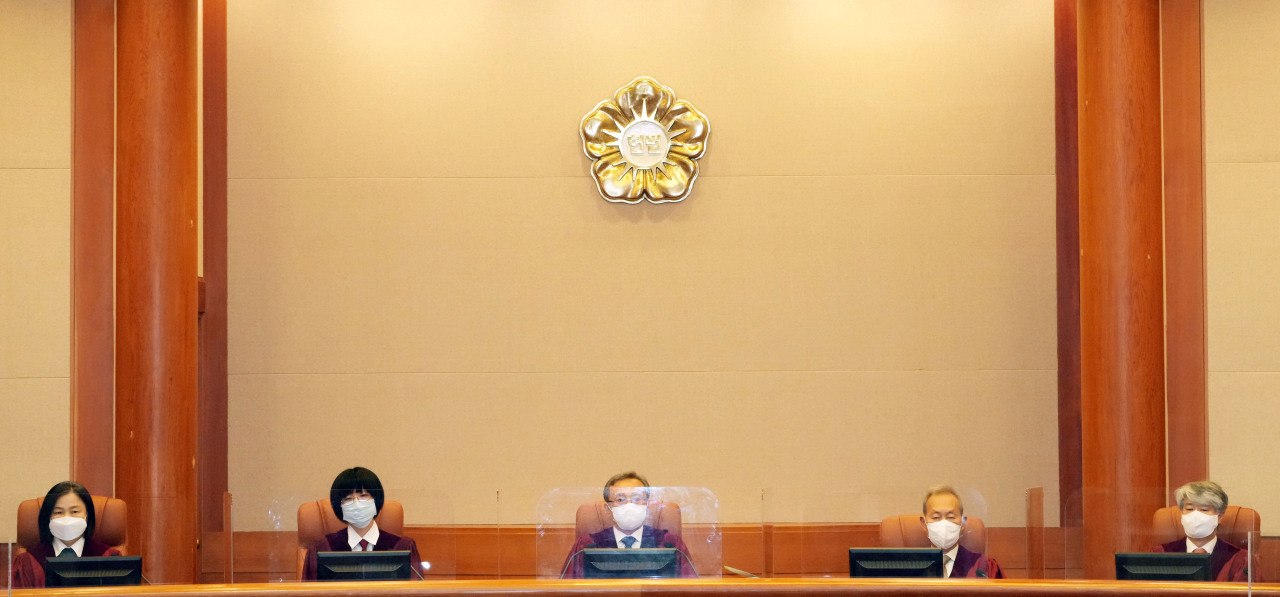Constitutional Court begins deliberations on Cold War-era National Security Act
By YonhapPublished : Sept. 15, 2022 - 09:47

The Constitutional Court was to hold an open hearing Thursday on whether the National Security Act is constitutional, the first public hearing on the law enacted during the Cold War in response to threats from communist North Korea.
The case follows a total of 11 petitions filed by individuals and district courts challenging the anti-communist law that was enacted in late 1948 in the height of ideological rivalries between the democratic South Korea and the communist North Korea.
The law aims to "secure the security of the state, and the subsistence and freedom of nationals," but it has also come under criticism for being a government tool to silence political dissidents.
At issue are the law's Articles 2 and 7.
Article 7 criminalizes praising or propagating activities of "anti-state" organizations or their members, as well as producing or possessing materials that instigate a rebellion or provoke any confusion of social order.
Article 2 defines any domestic or overseas organizations that call themselves "government" or have a rebellious purpose as "anti-state."
Since a revision of the law in 1991, the National Security Act had been challenged at the Constitutional Court seven times before, and it was ruled constitutional each time without an open hearing.
Petitioners argue the law infringes upon freedoms of expression, thought and conscience. They also say the law is so vaguely worded that it leaves much room for law enforcers to arbitrarily interpret and apply it.
Defending the law, however, Justice Minister Han Dong-hoon said in his opinion submitted to the court that the issue cannot be left to "'the ideological free market' because evil consequences from the spread of rebellious expressions might only be overcome at the cost of massive state damage and national division."
At least six of the nine constitutional judges need to give consent for the articles in question to be ruled unconstitutional. (Yonhap)







![[KH Explains] How should Korea adjust its trade defenses against Chinese EVs?](http://res.heraldm.com/phpwas/restmb_idxmake.php?idx=644&simg=/content/image/2024/04/15/20240415050562_0.jpg&u=20240415144419)











![[Today’s K-pop] Stray Kids to return soon: report](http://res.heraldm.com/phpwas/restmb_idxmake.php?idx=642&simg=/content/image/2024/04/16/20240416050713_0.jpg&u=)